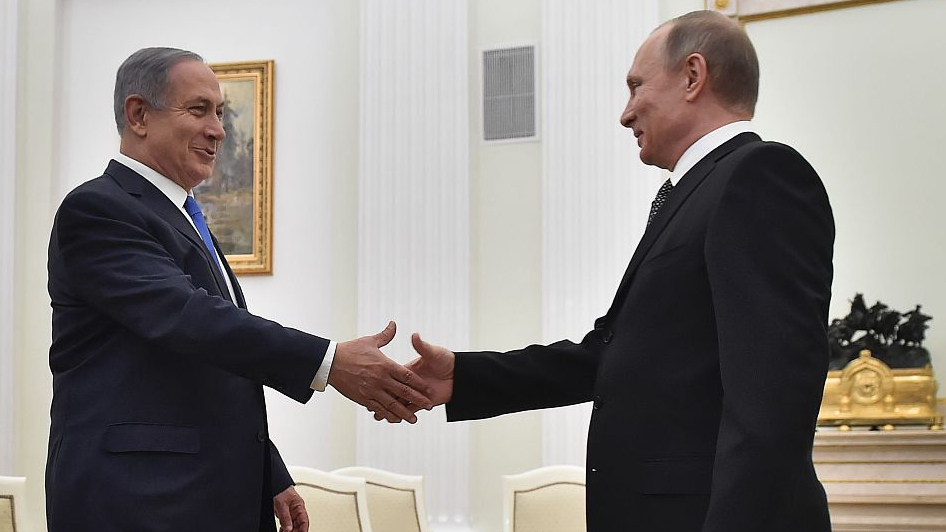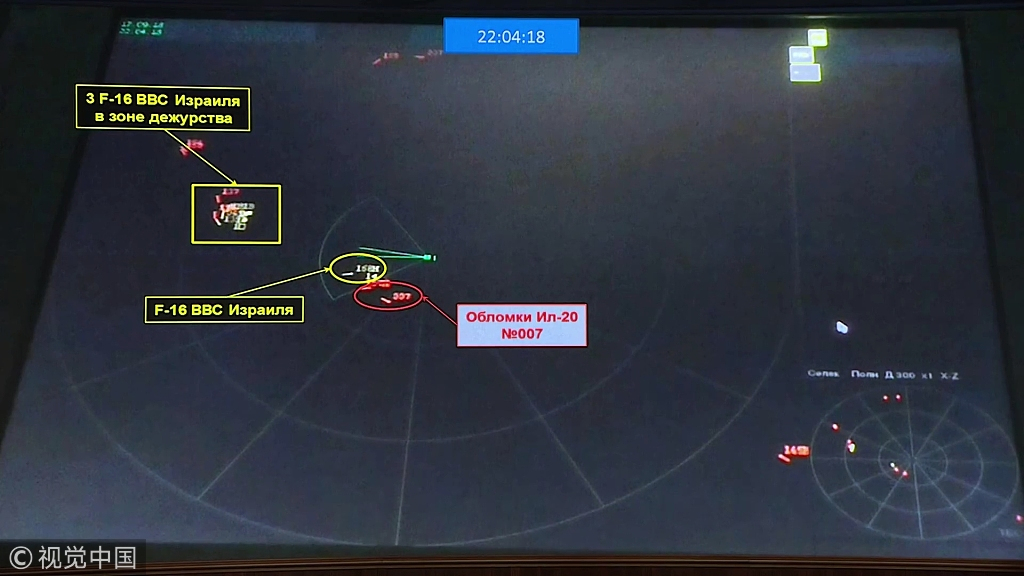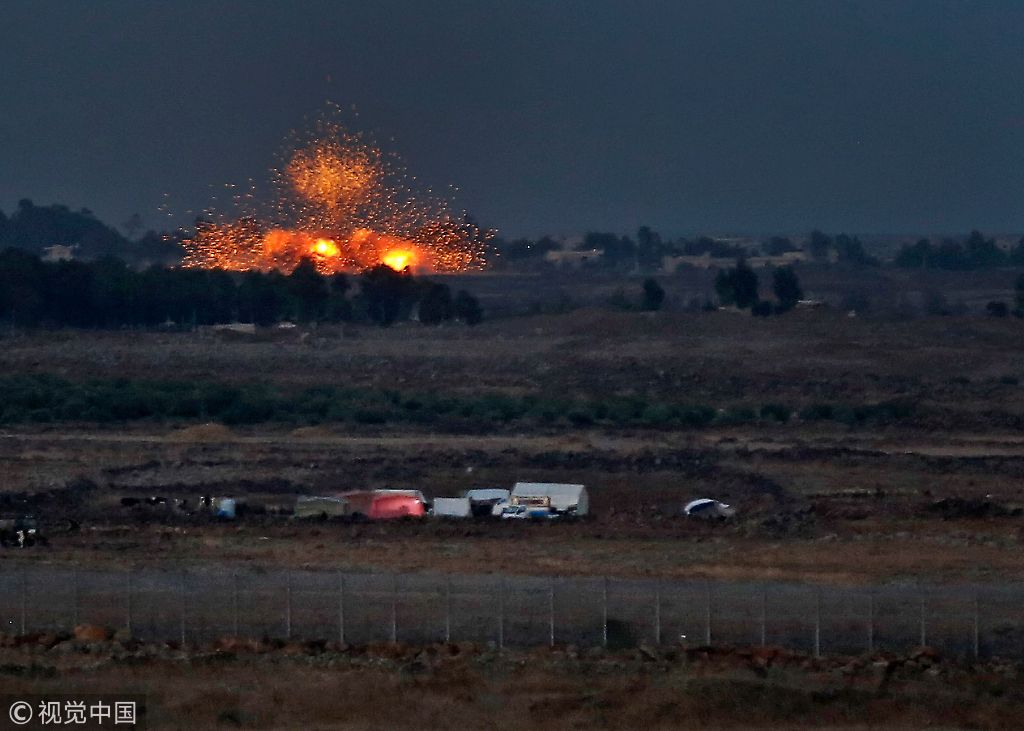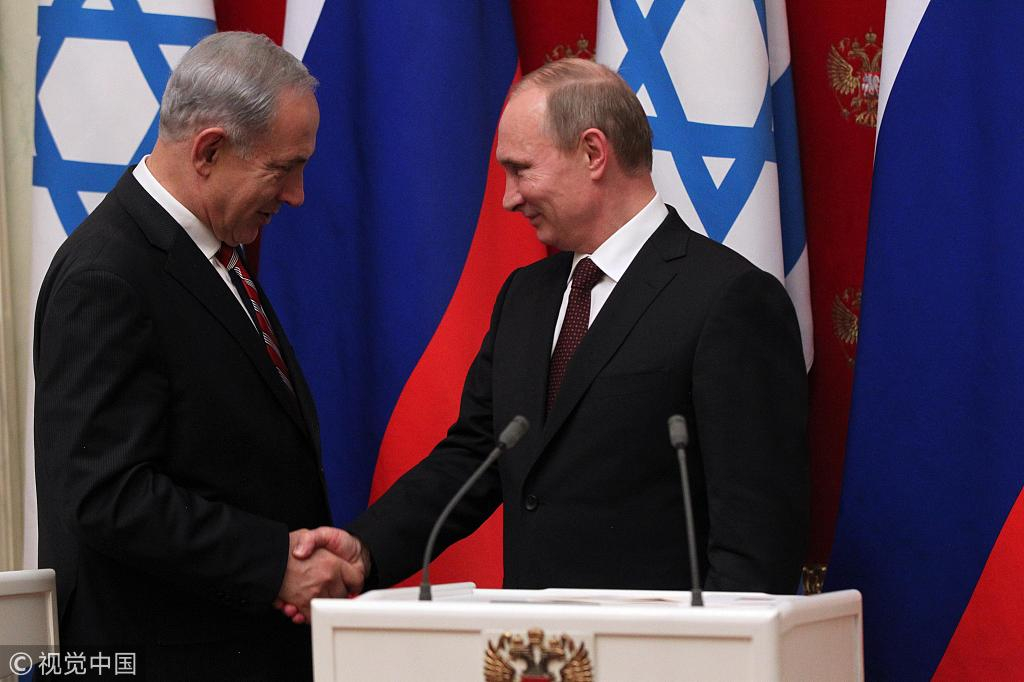
World
09:16, 20-Feb-2019
Netanyahu's trip to Moscow for 'important talks' on Mideast put back
Updated
20:12, 20-Feb-2019
By Li Deyi

A meeting scheduled between Russian President Vladimir Putin and Israeli Prime Minister Benjamin Netanyahu for Thursday in Moscow has been delayed, an Israeli official said.
“The meeting planned for tomorrow between the prime minister and President Putin has been delayed by a few days, as agreed upon between both sides. The two will hold a telephone conversation tomorrow and a new date for the meeting will be set soon,” the official said.
The Kremlin said on Tuesday that Putin and Netanyahu were due to discuss the situation in the Middle East, including Syria. The official did not say why the meeting was put off.
Netanyahu: Very important meeting with Putin
Speaking at the start of the weekly cabinet meeting, Netanyahu said that his talks with Putin were aimed to "prevent friction between the IDF (Israel Defense Forces) and the Russian army," adding Israel's efforts to prevent Iran from entrenching itself in Syria would also be discussed.
"These talks are very important and part of our ongoing effort to ensure the freedom of action of the State of Israel against Iran and its proxies," Netanyahu said, charging that Iran has "declared its intention to use Syria as a frontline in their struggle to destroy Israel."
The visit would be Netanyahu's first to Russia after Moscow charged that Israel had indirectly caused the mishap of a Russian military plane downed by a Syrian anti-aircraft missile over the Mediterranean Sea last September.

An analysis of the incident with a Russian Il-24 plane is displayed during a briefing in Moscow, September 24, 2018. /VCG Photo
An analysis of the incident with a Russian Il-24 plane is displayed during a briefing in Moscow, September 24, 2018. /VCG Photo
Analyst: Russia, Israel welcome unprecedented ties
"Russia and Israel have largely reconciled over what happened and are ready to take their relations with one another to the next level," Andrew Korybko, a member of the expert council for the Institute of Strategic Studies and Predictions at the People's Friendship University of Russia, said in an op-ed posted on Sputnik last Saturday.
Korybko also said that Netanyahu's visit will be an event of monumental importance, noting it will complete the process of reconciliation and herald the new regional realignment that the Russian president wished for.
"That's not to say that Russia's envisaged Mideast-wide security partnership with Israel is aimed against any third party such as Iran like some might think," Korybko added, stressing it's a game-changing development which implies that Israel is relying more on Russia to ensure its security than on the U.S., which would have been previously unthinkable.

File photo of several explosions caused by aerial bombardment across the border in Syria. /VCG Photo
File photo of several explosions caused by aerial bombardment across the border in Syria. /VCG Photo
Russia to ensure security of Israel
Regarding Iran as its biggest threat, Israel has repeatedly attacked Iranian targets in Syria and those of allied militia, including Lebanon's Hezbollah, an Israeli news website Haaretz.com reported.
Putin in his New Year address said: "Russian-Israeli relations will be developing in a constructive manner as a partnership for the benefit of the peoples of both states and in the interest of strengthening peace, security, and stability in the Middle East."
Russian Deputy Foreign Minister Sergei Ryabkov once said that Russia and Iran aren't "allies" in Syria and Russia "in no way underestimates the importance of measures that would ensure the very strong security of the State of Israel."

Russian President Vladimir Putin (R) greets Israeli Prime Minister Benjamin Netanyahu during a meeting in the Kremlin in Moscow, November 20, 2013. /VCG Photo
Russian President Vladimir Putin (R) greets Israeli Prime Minister Benjamin Netanyahu during a meeting in the Kremlin in Moscow, November 20, 2013. /VCG Photo
'Deconfliction mechanism'
Korybko in his article used the words, "deconfliction mechanism," to explain Russia-Israel ties on the issue of Syria.
Israel and Russia hold a hotline to avoid their air forces from clashing in the Syrian battlefield, reports said.
The Algemeiner, a news site covering the Middle East, Israel and matters of Jewish interest around the world, said that Netanyahu and Putin have talked by telephone several times since last September, and also had a face-to-face chat on the sidelines of a World War I armistice commemoration in Paris three months ago.
(Cover: Russian President Vladimir Putin (R) shakes hands with Israeli Prime Minister Benjamin Netanyahu during their meeting in the Kremlin in Moscow, April 21, 2016. /VCG Photo)
(With inputs from agencies)

SITEMAP
Copyright © 2018 CGTN. Beijing ICP prepared NO.16065310-3
Copyright © 2018 CGTN. Beijing ICP prepared NO.16065310-3